
16+ Creative Resume Templates & Examples
You're a creative soul craving a creative resume. Something pretty, but professional. A template that seductively whispers into a recruiters ear: I'm the one.

You know exactly how to make data tell a compelling story. Now it’s time for your business intelligence analyst resume to compel the recruiter to hire you.
Most people hate numbers. But you actually enjoy working with them. Understanding what they stand for really helps, and knowing how to use them to make business decisions is your specialty.
Your skills are in high demand, but some businesses will underestimate your role and try to convince you that you’re not that valuable to them. Know your value. Write a business intelligence resume that gets you into a Fortune 100 company.
This guide will show you:
Want to save time and have your resume ready in 5 minutes? Try our resume builder. It’s fast and easy to use. Plus, you’ll get ready-made content to add with one click. See 20+ resume templates and create your resume here.
Sample resume made with our builder—See more resume examples here.
Looking for other IT positions resume advice? Cast a glance at our guides:
Theron Litchfield
415-201-9993
Collaborative and technically-minded business intelligence analyst with 6+ years of experience in Big Data crunching. Eager to support DatAxe with expert analytical skills to advance the company’s business operations and strategic initiatives. In previous roles reduced account receivables by 18% by improving billing strategy, as well as boosted sales by 15% through recommendations on process improvements.
Senior Business Intelligence Analyst
InfoSys, Los Angeles, CA
2016–
Key achievements:
Business Intelligence Analyst
Datrix Systems, San Francisco, CA
2013–2016
Key achievement:
Master of Information and Data Science
University of California, Berkeley, CA
2013
B.A., Information Systems
UCLA, Los Angeles, CA
2011
Here’s how to write a business intelligence resume that demonstrates your intelligent approach to the resume science:
A single glance is enough for a recruiter to have an opinion about you as a candidate.
Here’s how to make the best impression possible:
The top section of the page should be taken up by a profile on your resume.
It’s a short paragraph that brings together the highlights of your resume and is a written version of an elevator pitch.
You have two choices:
A resume summary is great for a senior business intelligence analyst resume with at least 2 years of experience. It focuses on your experience and achievements.
A resume objective is suitable for an entry-level business intelligence analyst resume. It focuses on the skills that make you a perfect fit for the position.
Either way, the opening section of your resume will benefit a lot if you put numbers that demonstrate your impact.
Pro Tip: Write your resume profile once your entire resume is ready. It will be much easier to pick out the meatiest bits.
Your resume work experience is vital.
It must convince the recruiter you’ll get the job done better than the other 250+ candidates.
How do you do this?
The first step is to tailor your resume to the job posting:
Pro Tip: Quantify as many of your experience bullets as you can. Cherry pick the things you take the most pride in and put them in a key accomplishments subsection.
When making a resume in our builder, drag & drop bullet points, skills, and auto-fill the boring stuff. Spell check? Check. Start building a professional resume template here for free.
When you’re done, Zety’s resume builder will score your resume and tell you exactly how to make it better.
Let’s admit it—
Your resume education section is just as crucial as any other.
Here’s how to cope with it smoothly and quickly:
If you want to include a certification on your resume it’s a good idea to create a dedicated section to make it more visible.
Pro Tip: You can also add info on your GPA score if it was upwards of 3.5 and if you graduated less than 3 years ago.
There’s one thing all recruiters have in common—
They look for skills.
The list below will help you identify your core business intelligence analyst strengths:
Here’s how to pick out skills relevant to the position:
Pro Tip: To avoid falling victim to the presenter's paradox, focus on your strongest skills and leave out all the others.
Wow the recruiter by adding some extra sections to your business intelligence resume:
How important are cover letters?
Quite important.
Why?
Half of the recruiters expect you to send a cover letter.
Here’s how to how to make a job-winning cover letter in a matter of minutes:
Make sure the length of your cover letter doesn’t discourage the recruiter from reading it.
Pro Tip: Write and send a follow up email for a job to stand out.
Plus, a great cover letter that matches your resume will give you an advantage over other candidates. You can write it in our cover letter builder here. Here's what it may look like:
See more cover letter templates and start writing.
This is it!
This is how you make a job-winning resume for business intelligence analyst positions.
Are you writing a business intelligence resume for the first time? Or perhaps you’re a seasoned pro eager to help the rookies out? We’d love to hear from you, leave your comment below!
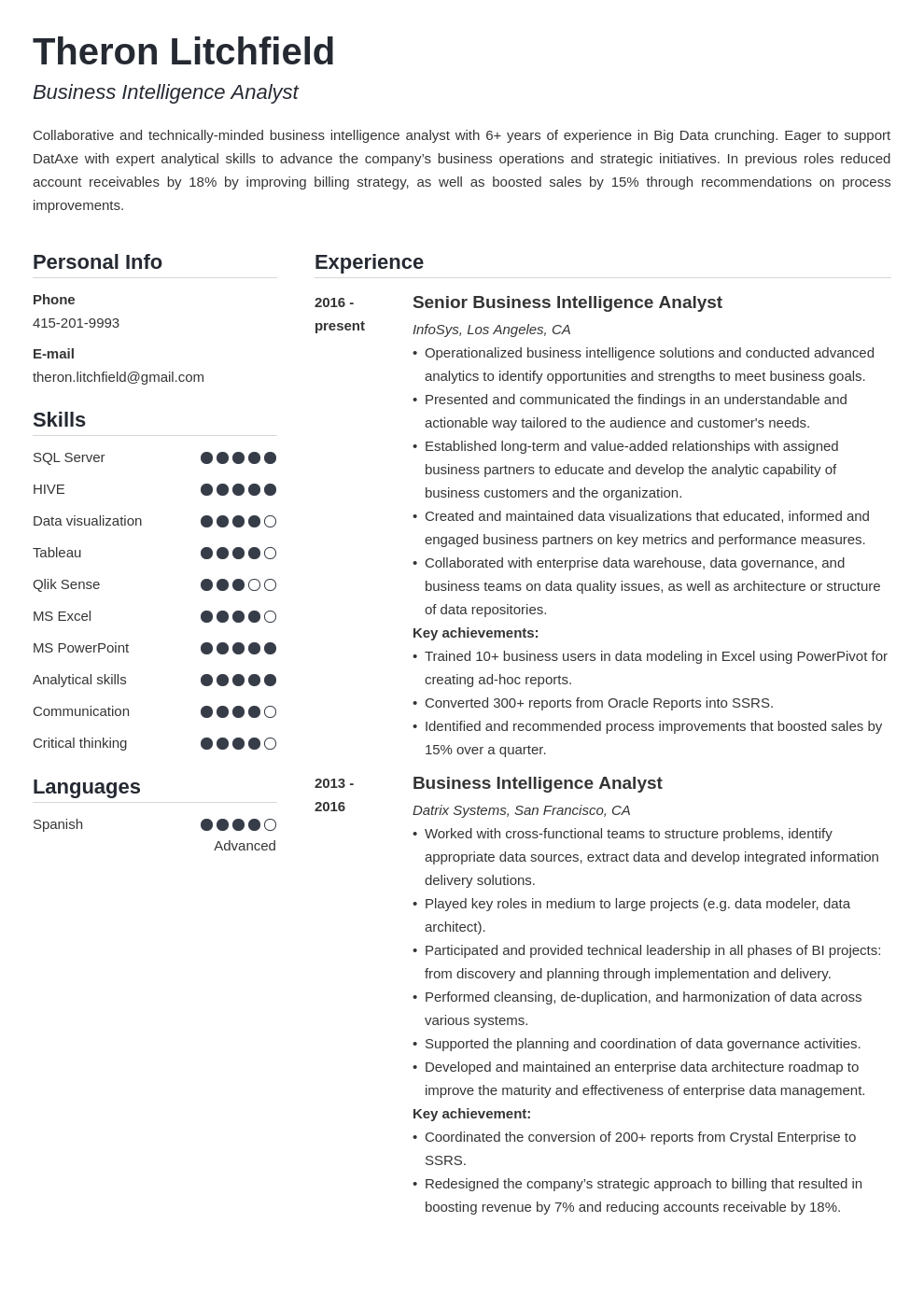
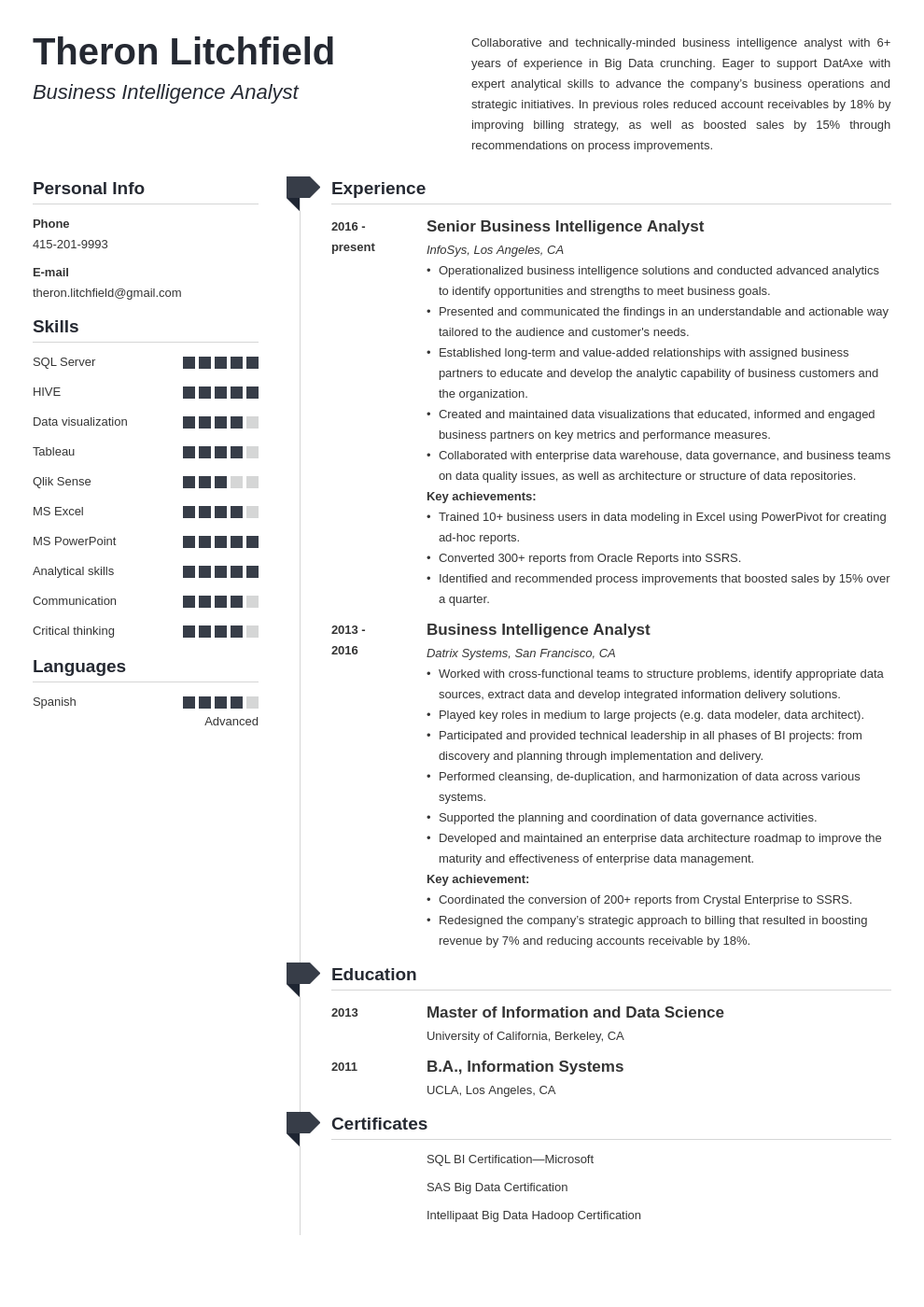

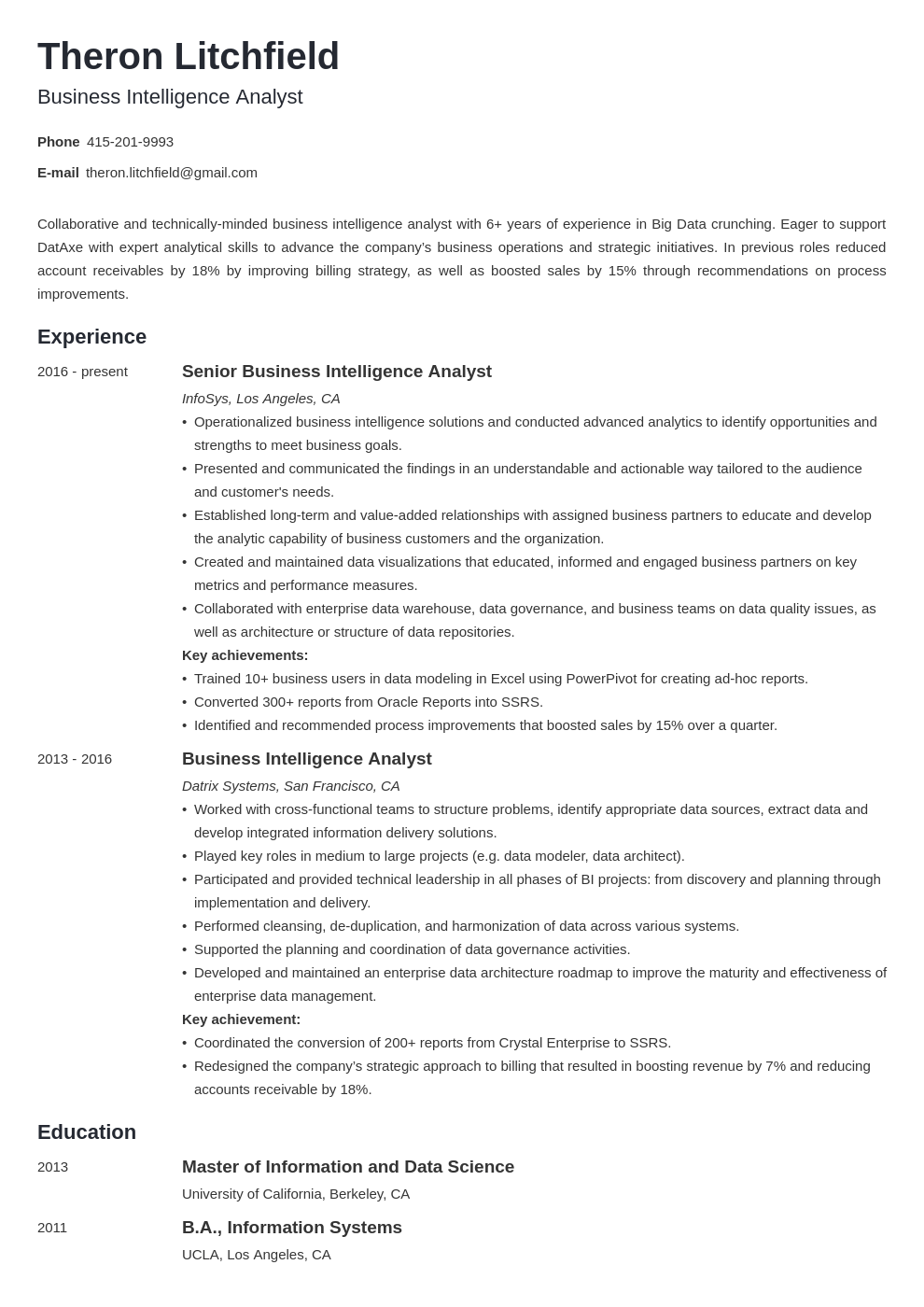
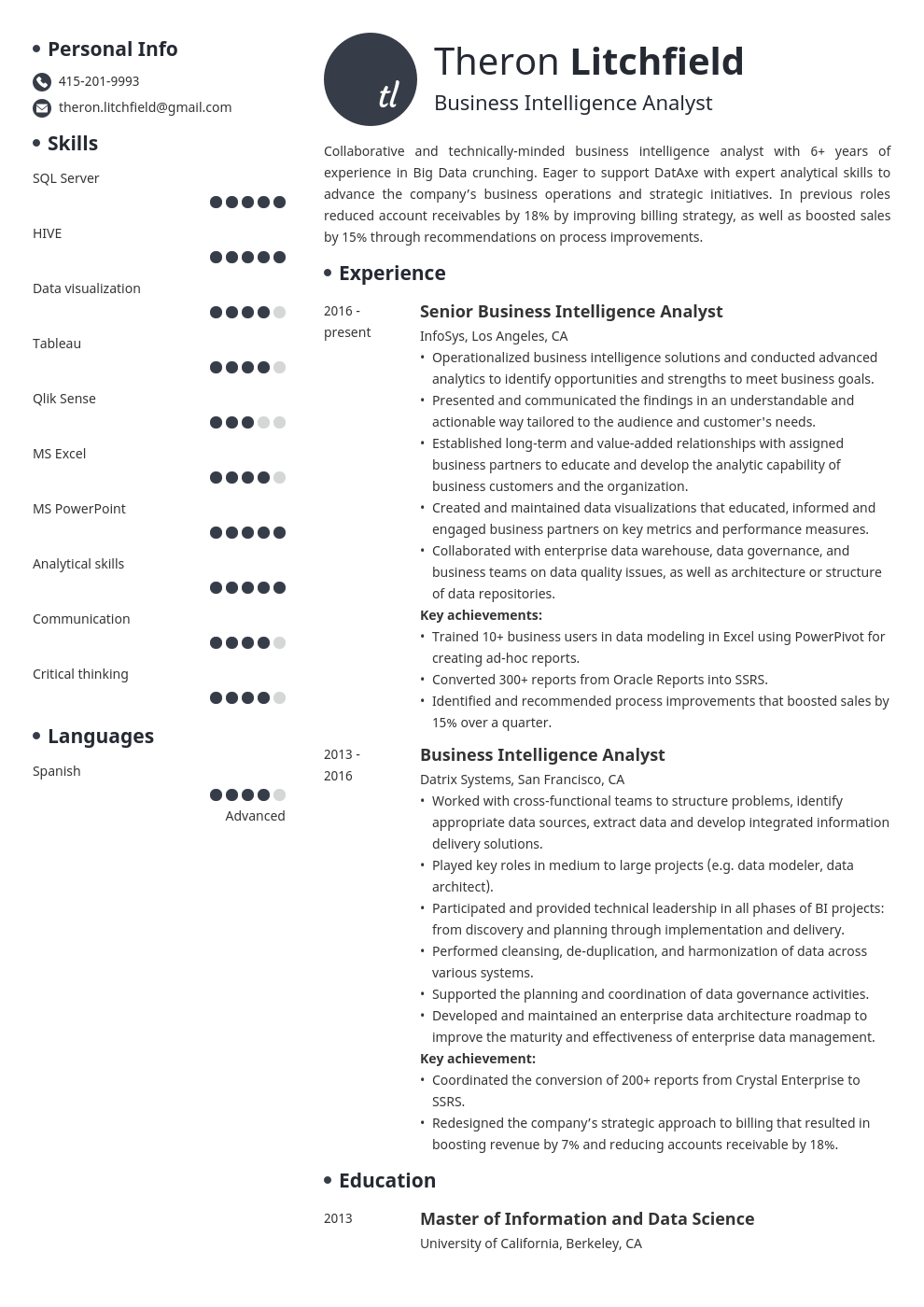
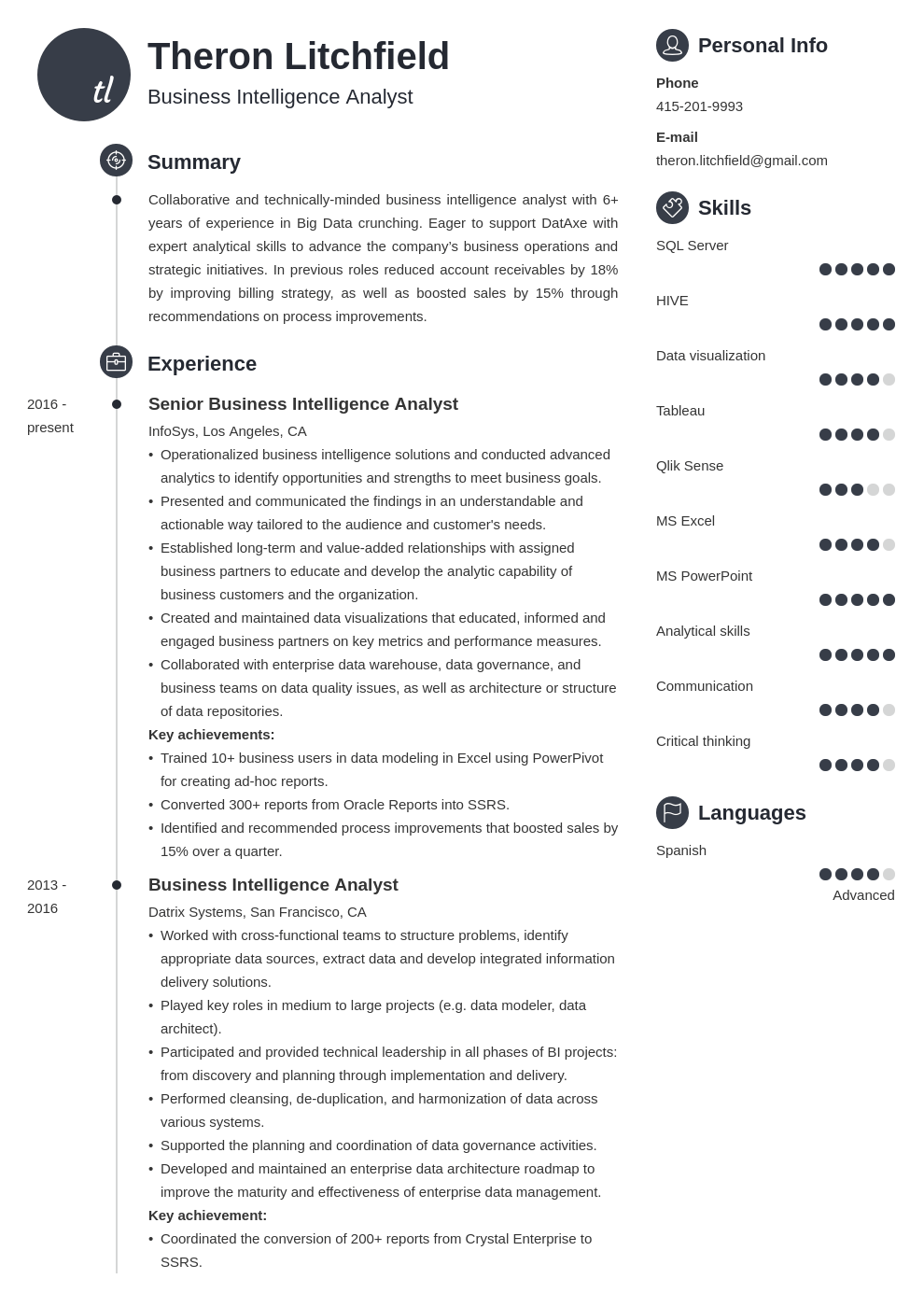
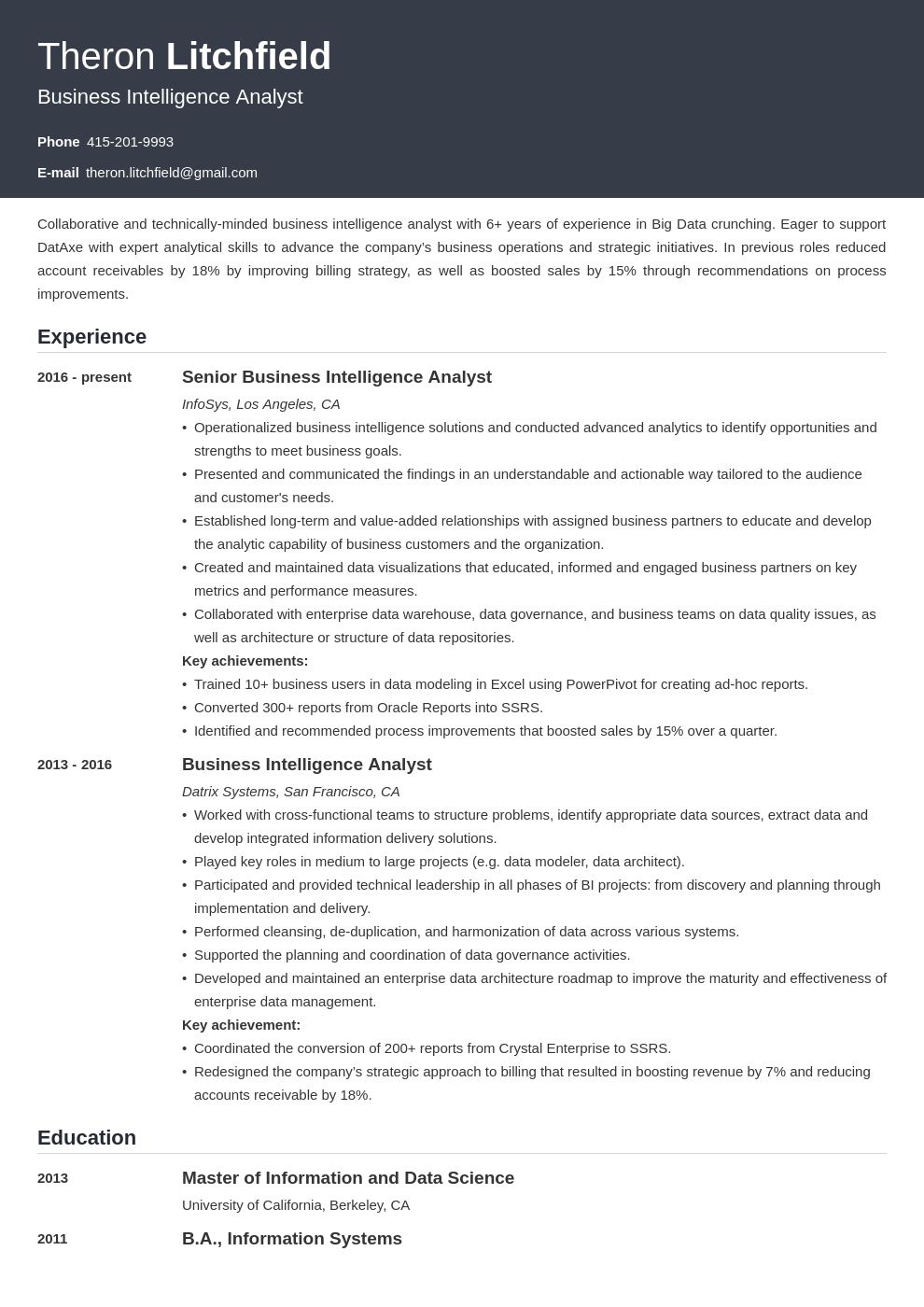

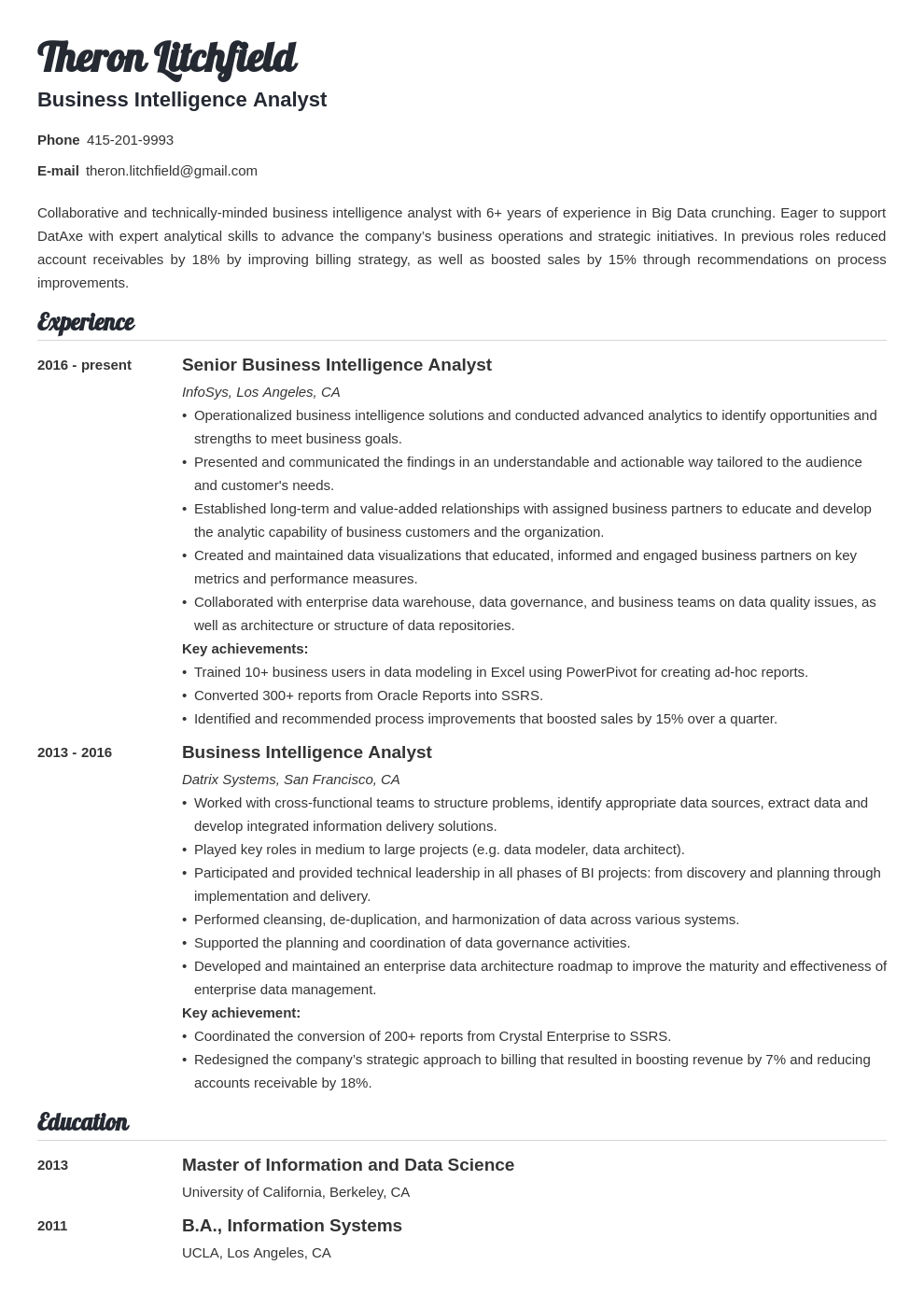
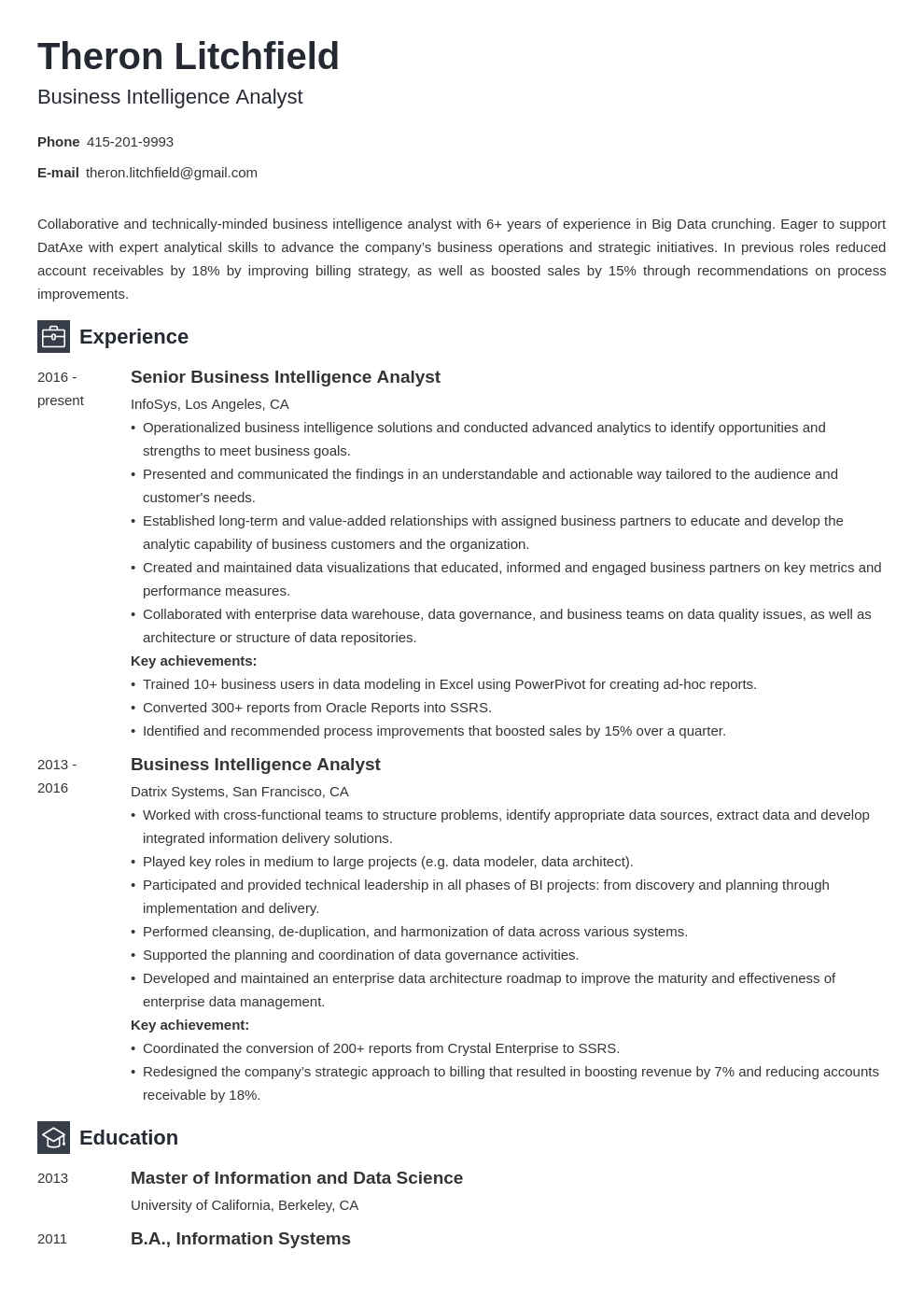
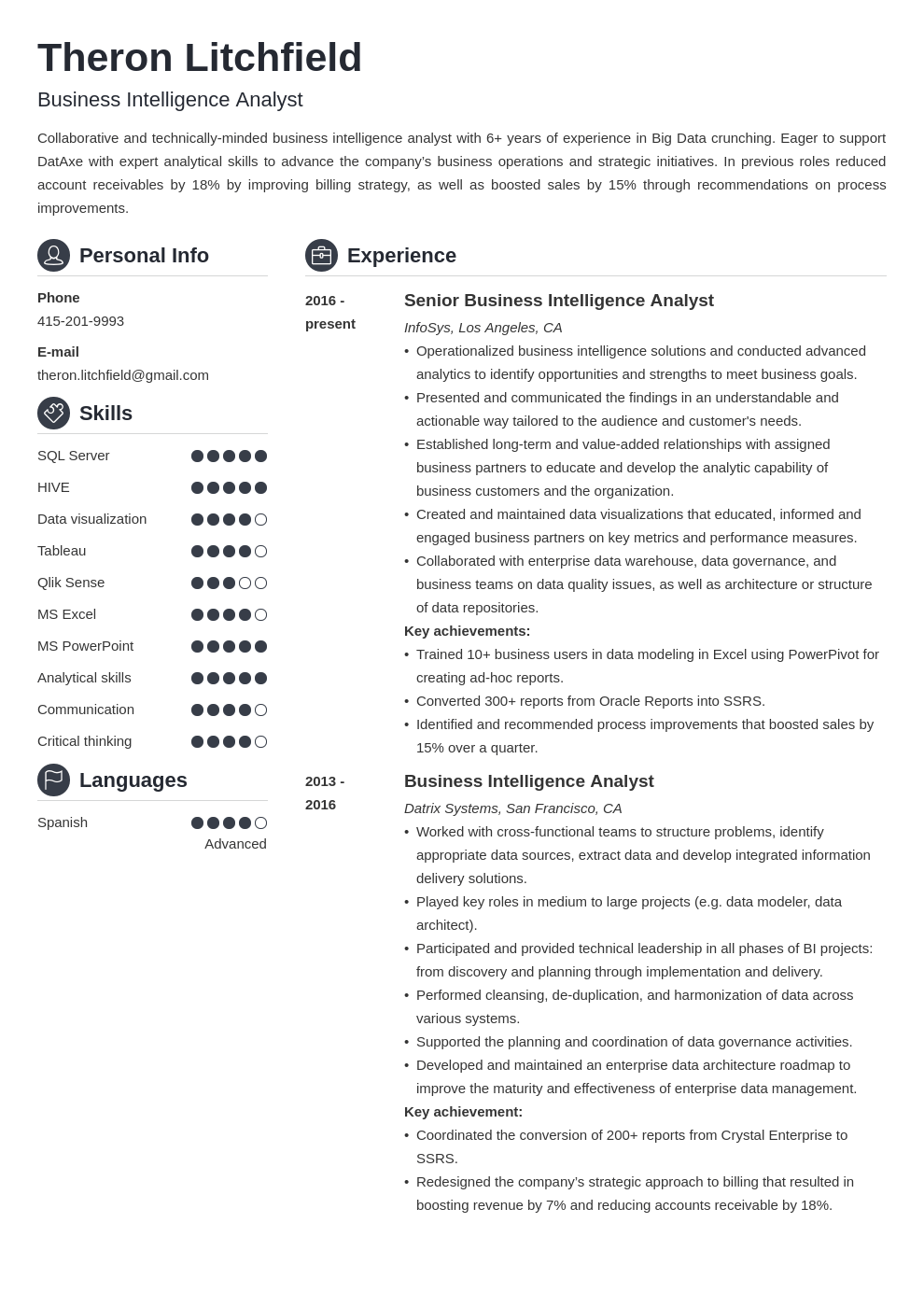
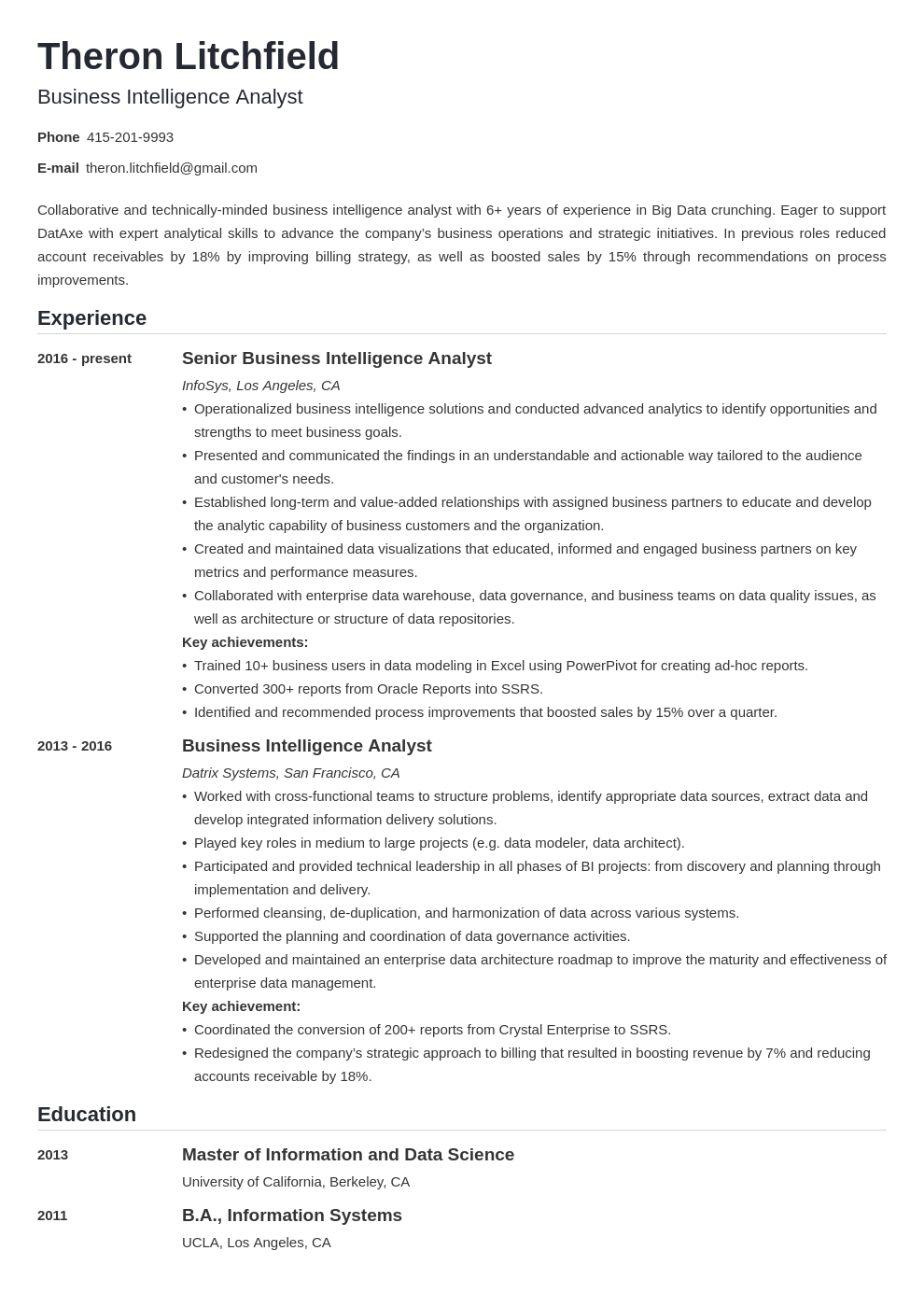

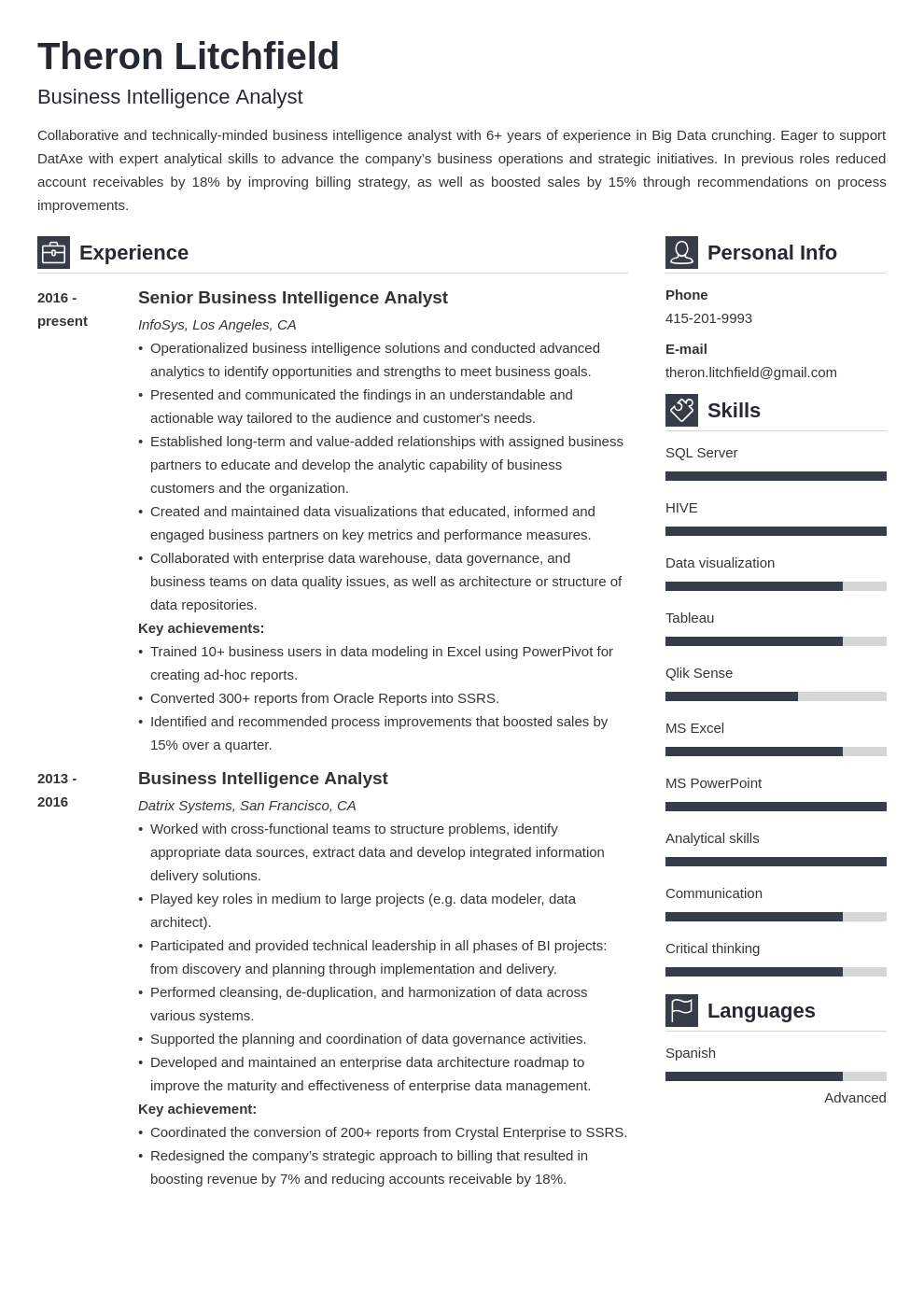
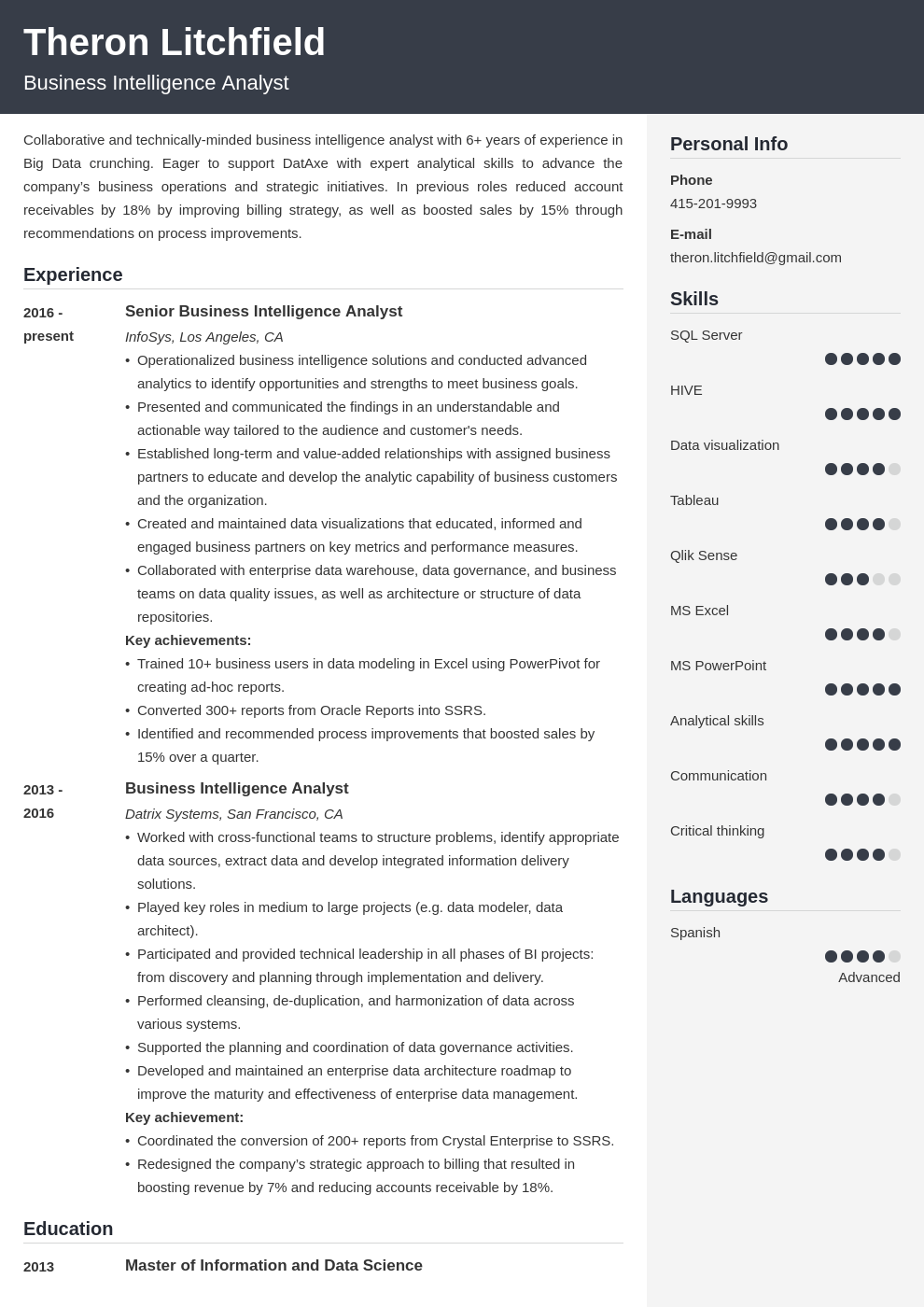
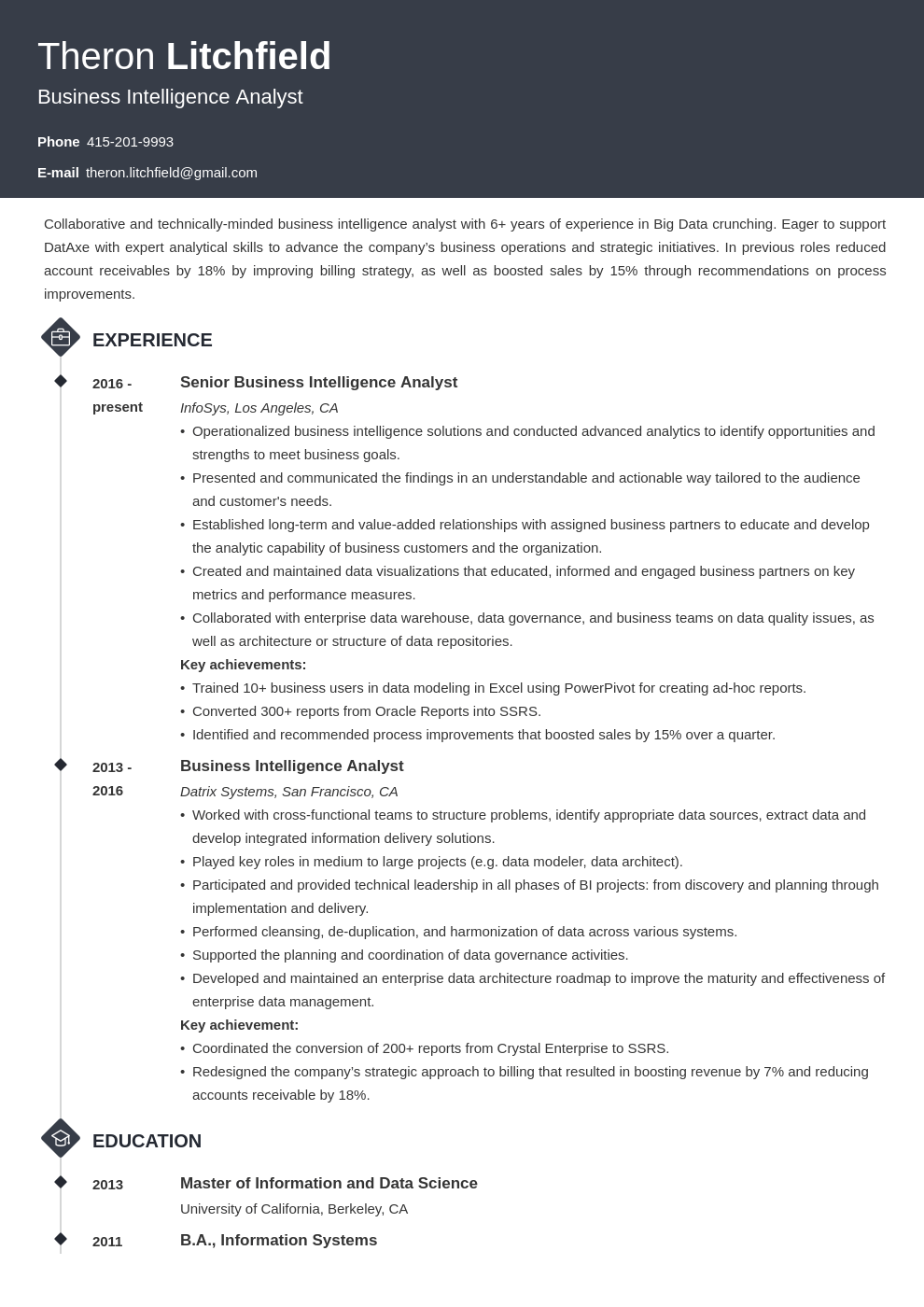
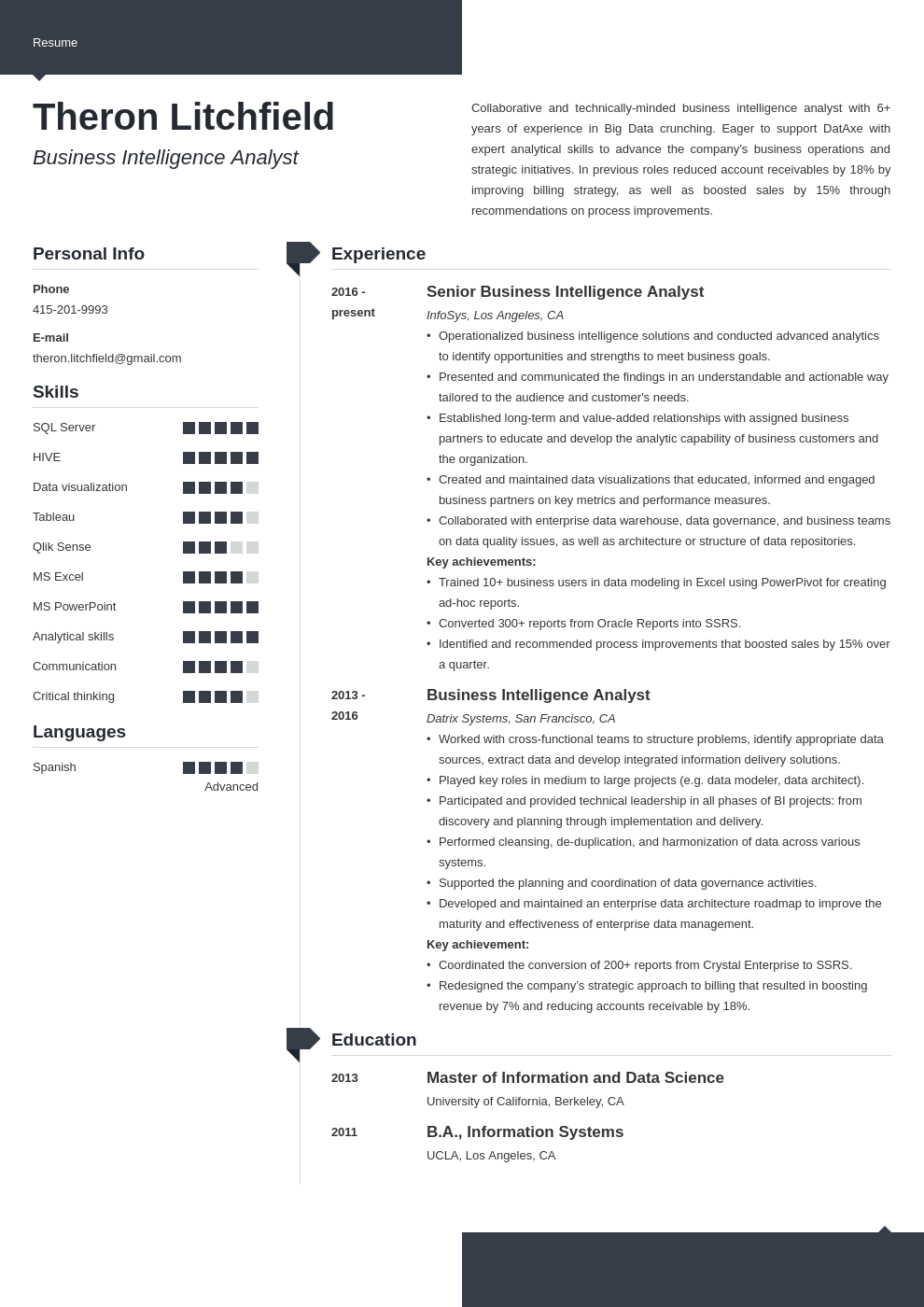
You're a creative soul craving a creative resume. Something pretty, but professional. A template that seductively whispers into a recruiters ear: I'm the one.
The best resume templates aren't just about fancy looks. They have to be sleek and professional. Their layout needs to show off your value. Here's what'll help.
Ever wondered what makes a good resume good? We found the 11 things your resume needs to be the very best.

